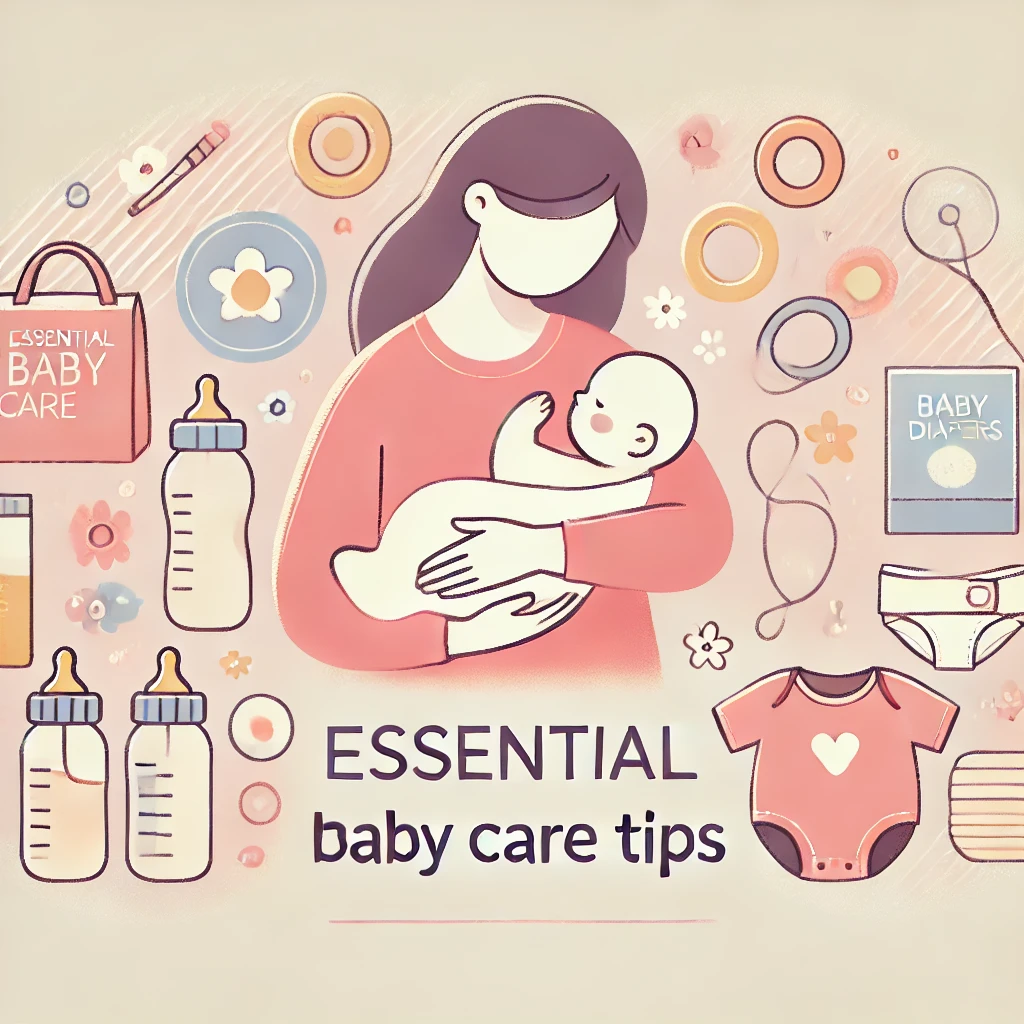
Essential Baby Care Tips for New Parents: A Guide to a Smooth Start
By: Momsworth
Becoming a new parent is both exciting and overwhelming. From late-night feedings to endless diaper changes, the first few months with your newborn can feel like a whirlwind. But with a little guidance and preparation, you can navigate the challenges of baby care with confidence. In this blog, we’ll share essential baby care tips to help you make the most of those precious early days.
1. Feeding Your Newborn
One of the most critical aspects of newborn care is feeding. Whether you choose to breastfeed or formula-feed, ensuring your baby gets enough nourishment is essential. Breastfeeding has numerous health benefits for both the mother and baby, providing all the necessary nutrients for your baby’s growth. If you’re bottle-feeding, choose a high-quality formula that meets your baby’s nutritional needs.
Always be mindful of feeding cues, such as sucking on hands or crying. As a general rule, feed your newborn every two to three hours, but don’t stress if your baby feeds more or less frequently—each baby is different!
2. Safe Sleep Practices
Safe sleep is crucial for newborns to reduce the risk of Sudden Infant Death Syndrome (SIDS). The American Academy of Pediatrics recommends placing your baby on their back to sleep on a firm mattress with no pillows, blankets, or stuffed animals. Make sure the baby’s crib meets all safety guidelines, and avoid using bumpers or toys in the sleeping area.
Consider swaddling your baby to provide a sense of comfort and security. Keep the room at a comfortable temperature to ensure your baby isn’t too hot or too cold.
3. Diapering: Keep It Clean
Diaper changes will become second nature over time. To keep your baby comfortable, change their diaper frequently, especially after every feeding or when they have a wet or soiled diaper. Always clean their skin thoroughly and use a gentle, baby-safe diaper cream to prevent rashes.
Stock up on diapers, wipes, and diaper rash cream to ensure you’re always prepared. For parents interested in eco-friendly options, consider cloth diapers, which can be washed and reused.
4. Bathing Your Baby
Until your baby’s umbilical cord falls off, give them sponge baths to keep their skin clean. Use a soft washcloth, warm water, and a gentle baby cleanser. Afterward, pat your baby dry and apply a mild baby lotion to keep their skin hydrated. Once your baby is ready for a full bath, make sure the water temperature is lukewarm and always supervise them closely.
5. Bonding with Your Baby
Cuddling, talking, and playing with your newborn are excellent ways to bond. Skin-to-skin contact helps your baby feel secure and loved. Don’t be afraid to sing, read, or talk to your baby, even if they can’t understand the words yet—your voice will provide comfort and stimulation.
6. Dealing with Colic
Some babies may experience colic, which involves prolonged periods of crying for no apparent reason. If your baby is colicky, try soothing techniques like swaddling, rocking, or a gentle massage. You can also use white noise machines or soft music to calm them.
7. Visit Your Pediatrician Regularly
Routine checkups with your pediatrician are essential to monitor your baby’s growth and development. Vaccinations, weight checks, and developmental milestones will all be reviewed during these visits. Be sure to ask any questions or raise any concerns you may have about your baby’s health.
By following these essential tips, you can help ensure that your baby is safe, healthy, and well-cared for. And remember, every parent makes mistakes along the way—what’s most important is that you do your best and give your baby all the love and attention they need.
Published on: 10/23/2024